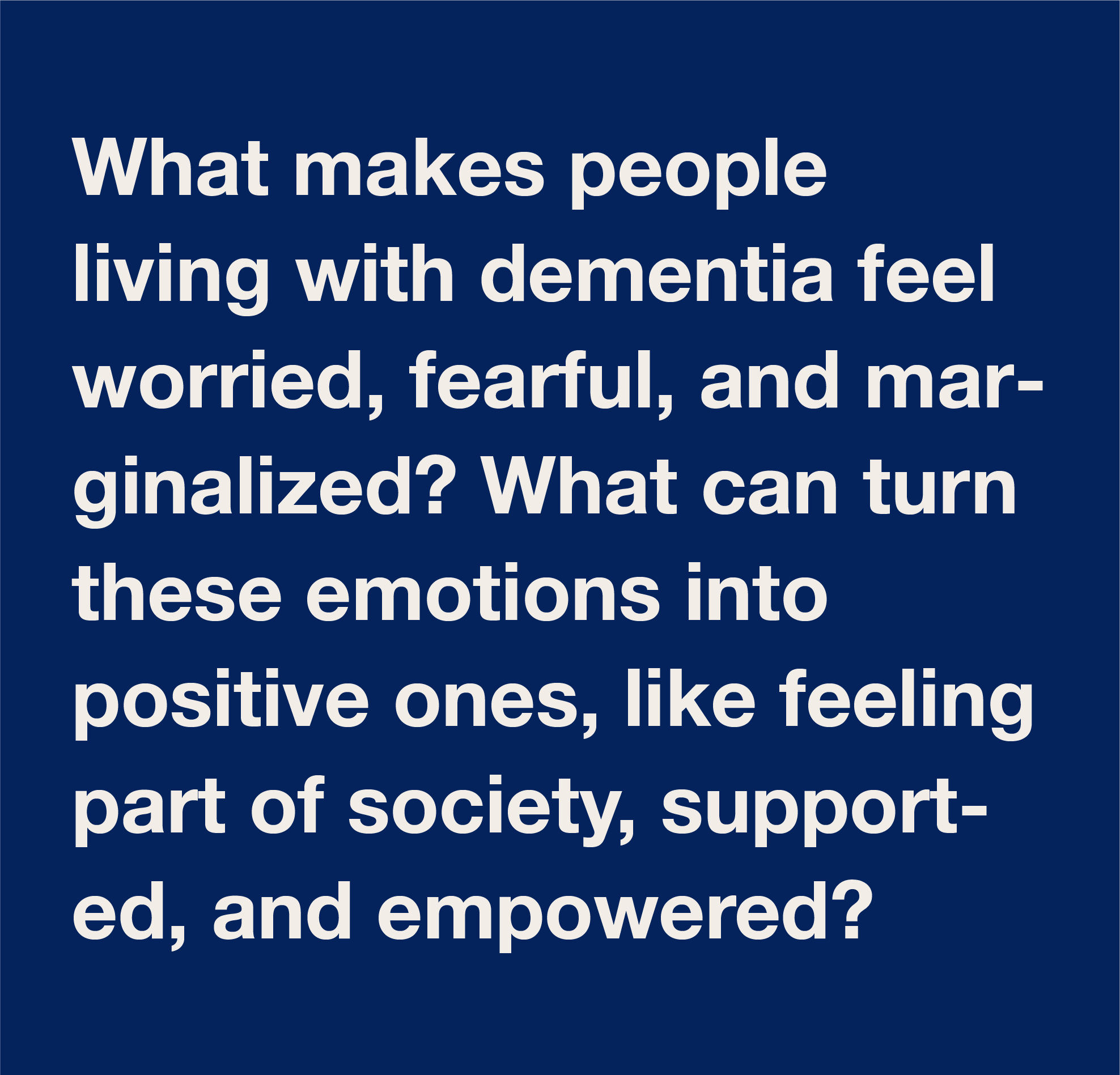Emotions
Study Two – Negative emotions in dementia
Background
The emotional life of people living with dementia has been traditionally discussed by the literature in terms of deficits, including affective symptoms, like apathy and depression (Finkel, 1996). However, rather than focusing only on the expression of symptoms, different circumstances, both personal, environmental and social, can cause the emotional distress of people living with dementia. Research showed that acknowledging and challenging negative emotions can help make sense of the illness, especially with the help of supportive environments (e.g., Lishman et al., 2014). We lack a clear view of the negative emotions that people living with dementia may experience in their daily lives. Behind these negative emotions may lie people with dementia’s unmet needs (Algase et al., 1996) that are difficult to bring to light and address in everyday contexts and in health care.
Objective
Clarifying the various reasons behind the negative emotions of people with dementia and highlighting how they can be challenged and overcome.
Methodology
We collected data from the ‘Dementia Diaries’ website. We conducted a Grounded Theory Method analysis (GTM; e.g., Glaser & Strauss 1967/1999; Bryant & Charmaz, 2019) to investigate the role of negative emotions in the lives of people with dementia.
Synthesis
People with dementia’s negative emotions are triggered by many circumstances beyond the symptoms of dementia. For example, lack of social acknowledgement and everyday barriers (in transportation and technology) can make feel people with dementia worried, fearful and marginalised. However, when people with dementia feel supported and valued, they can balance the negative and positive aspects of living with dementia. As a result, they can develop coping strategies and improve their well-being. Our study sheds light into people with dementia’s potential to grow and flourish despite adverse personal and environmental conditions.
Practical Aplication
Social activities designed with and for people with dementia and dementia-friendly environments seem ideal tools to empower people with dementia and improve their wellbeing.

